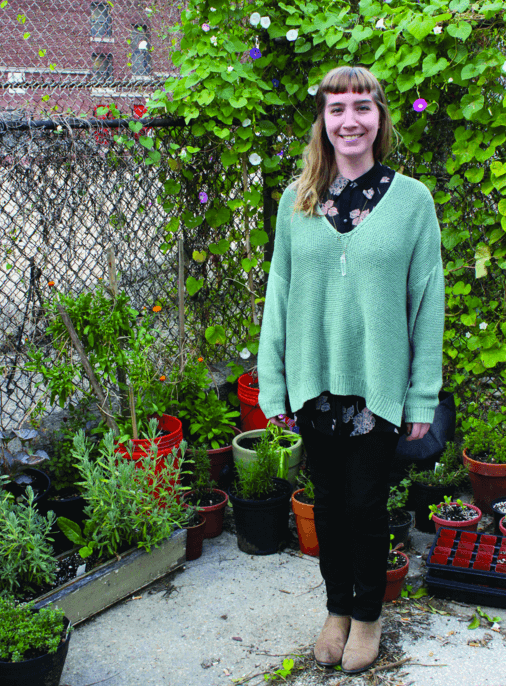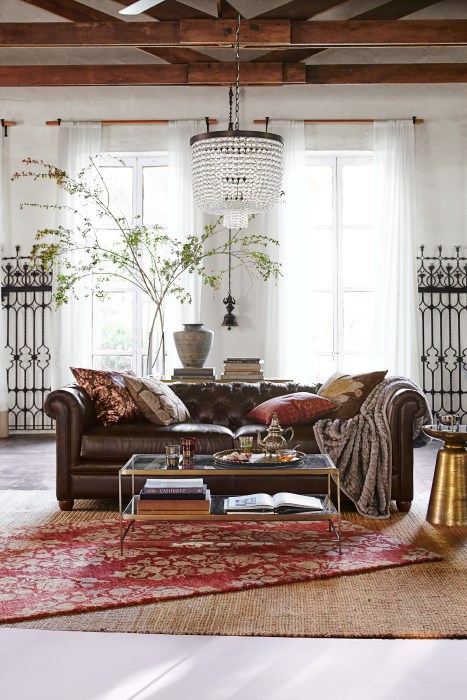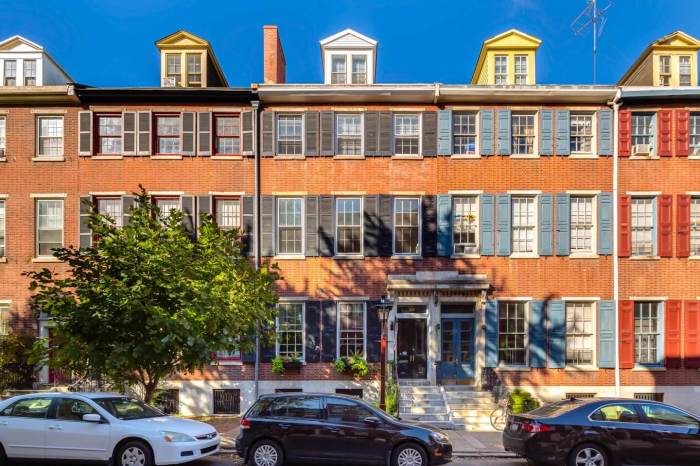As long as you have a windowsill, a plastic potand a little potting soil, your outdoor herb garden can survive the winter, promises Elise Hanks — just bring it inside.
Hanks runs Terra Luna Herbals, selling small-batch herbal products like cocktail syrups and sage sticks through Etsy and at local shops near her Philadelphia home. She stared out growing veggies, and switched to focusing on herbs after taking classes in herbalism — the medicinal use of plants — at the now-closed Herbiary in Chestnut Hill. She tells us how to transfer our gardens to the great indoors and keep them going strong, even when we’re shivering.
Related: How to organize a fall clean-up Don’t rush it: “A couple of days before bringing herbsin, you should cover them with landscape fabric or plastic to mimic the new environment inside. Give them time to adjust. [Once inside,] agood place to put them is the windowsill with either direct or indirect sunlight.” Use the right container: “It’s better to have herbs in a plastic pot instead of terra cotta.The clay can dry out the plant a little faster. And use loose potting soil.”
Or put it in a jar: “You can cut the stem and put it in some water to stimulate the root growth. Once you see the roots growing in the water, you can plant it. It’s a good way to propagate without collecting seeds. You can do that with succulents or cacti.” Bring the sunshine in: “I have a shelf dedicated to the plants and I have lights on timers going on and off to simulate sunlight.”
Pro tip: What to plant Remodeling project
Know if you even need to bring it in: “Philadelphia’s [hardiness] zone is 6-7. It factors in average temperatures and when the ground freezes. If you’re planting a bulb — tulips, tuber vegetables — you can plant that any time before the ground freezes in the winter and then it’ll grow in the spring.”
Hanks says rosemary is one of her favorite hardy, useful herbs. “It tastes good, it’s easy to grow, it’s anti-inflammatory, it’s known to be good for your memory, and it’s a perennial,” she says. “If you take care of it, you can keep it going for many years. I use it almost every day.”
For now, Hanks grows about 20 percent of the herbs she uses for Terra Luna, like lavender, rosemary and thyme, but the goal is remodel her concrete Fishtown backyard into a thriving garden that not only provides space to cultivate all of the herbs she needs, but can also be a site for hosting low-cost Herbalism 101 classes for the community. Hanks is raising money for the project through Indiegogo and working with local landscapers Bluebird Native Plants. The company aims to restore spaces using native plants, as the name suggests, and uses found materials in their designs.
Herb garden winter survival guide

Matt McGraw

















